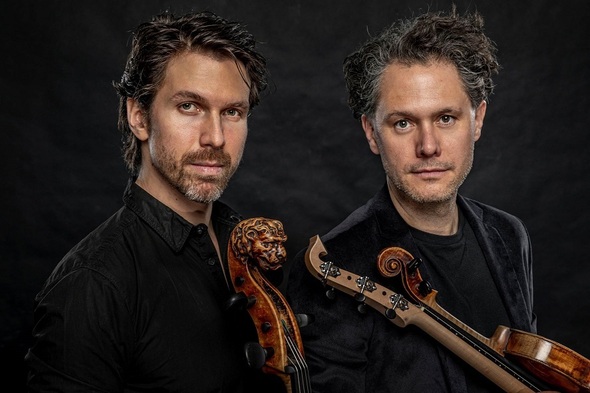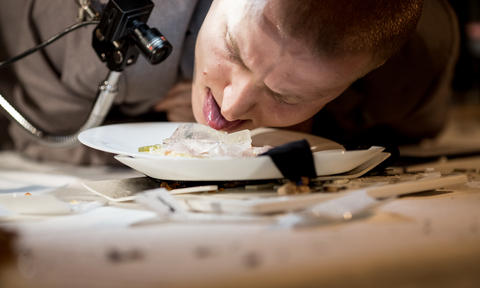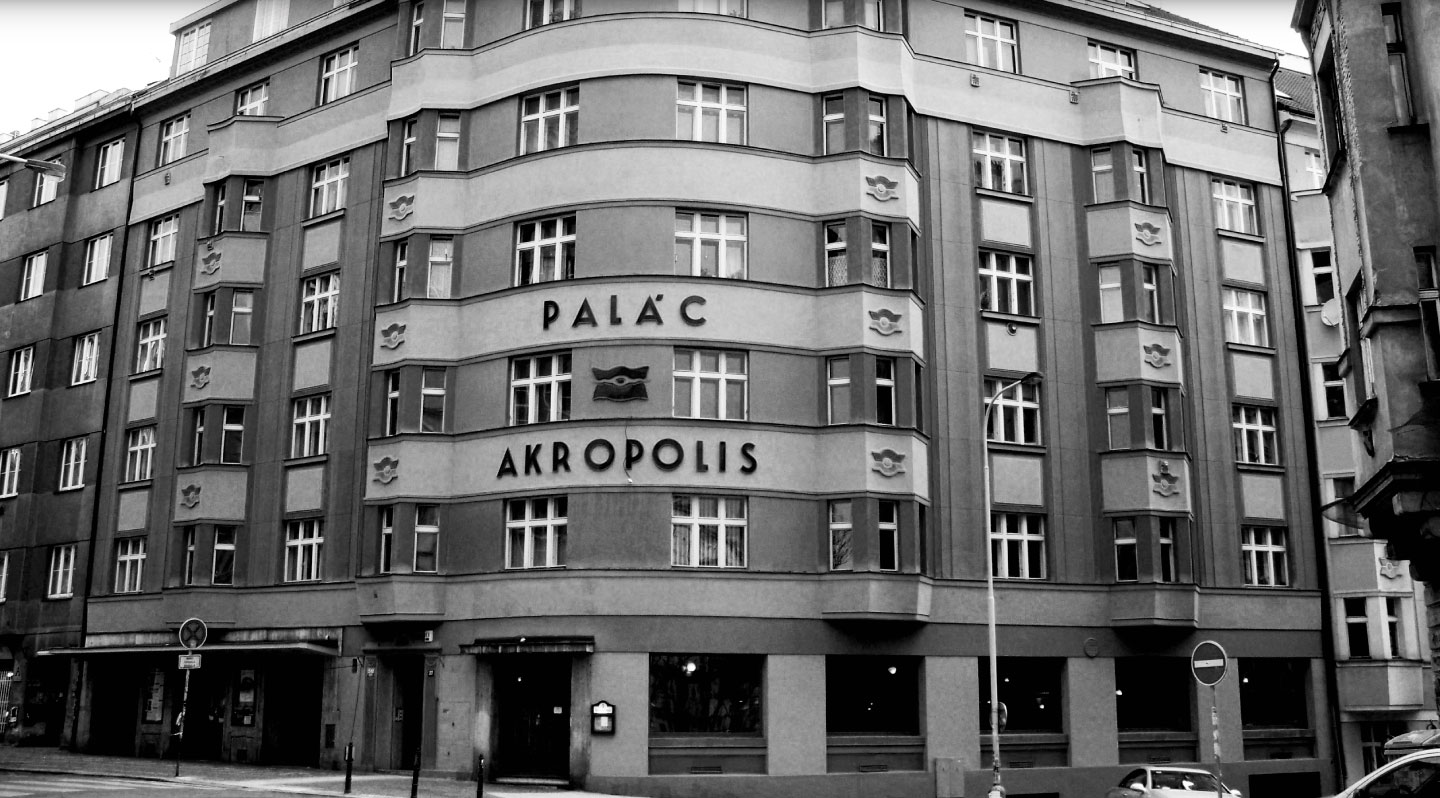|
Friday 12. 5.
info Progressive Strings – precision of classical music, spontaneity of jazz improvisation and heavy rock grooves The respect for the sound of their instruments, as well as a shared passion for creating new sounds, brings two musicians, the winners of the Preis der Deutschen Schallplattenkritik in the 'Grenzgänge' category, together. The cellist Matthias Bartolomey and the violinist and mandola player Klemens Bittmann are leading their instruments out of their deeply rooted classical tradition to new musical pathways. With the spontaneity and improvisation of Jazz, their music includes heavy groove and rock elements as well as intimate ballads and fast uptempo compositions. From the very beginning, they focused on creating original compositions, experimenting with new playing techniques for the cello, violin and mandola. Their extensive musical scope ranges from powerful rock riffs and frantically virtuosic unison passages to visceral grooves and tender cantilenas – always seeking the acoustic essence of their instruments, without resorting to electronics or effects. Matthias Bartolomey and Klemens Bittmann have always conceived their duo as a long-term project, a counterbalance to our fast-paced times. This gives them the opportunity to continually perfect their ensemble playing while elaborating their musical statement in numerous concert tours and intensive composing sessions. Their new program z e h n is a celebration of their ten-year anniversary as an ensemble. It consists of new pieces, most of them written while on Covid lockdown. It is interesting to compare their arrangements of Jimi Hendrix with the Kronos Quartet. American musicologist Ethan Hein writes of Kronos that it is good that they are playing Hendrix, but wonders if the attempt is successful. While Hendrix’s original has a groove, a rhythmic drive, the Kronos have cancelled out that quality with their “clever” tempo changes. In terms of time, Kronos is more interpretive, the essence eludes them. The classical player is perfect in intonation and tone color, but doesn’t know what groove is. Of the Bartolomey-Bittmann duo, however, guitarist Wolfgang Muthspiel writes: “It is rare to hear string players so intensely focused on rhythm. BartolomeyBittmann embody unbridled playfulness.” Matthias Bartolomey grew up in a musical family, studied in Vienna and Salzburg, and founded the duo with Klemens Bittmann in 2012. He plays a historic cello made in Rome in 1727 by the renowned German instrument maker David Tecchler. He has a similar reputation to the far more famous Antonio Stradivari. Klemens Bittmann studied classical violin at the University of Music and Arts in Graz, where he now teaches, and learned jazz technique at the Didier Lockwood Centre in Paris. In addition to the duo BartolomeyBittmann, he plays in more than ten other projects in the field of jazz, classical and world music. He collaborates with Austrian guitarist Wolfgang Muthspiel, known for his albums for ECM, and was responsible as arranger for the groundbreaking album Celebrating The Mahavishnu Orchestra released on the prestigious ACT label. His violin was made by Czech-Austrian instrument maker Josephus Pauli in 1817. S.V.A. Trio S.V.A. Trio – a string trio playing jazz fusion, is a formation of three renowned musicians with great multi-genre experience, who focus on original music. Like BrtolomeyBittmann, these musicians are educated in classical music, but their endeavor is a fusion of classical music and jazz. They are a unique and innovative ensemble on the Czech scene, reflecting common musical influences and responding to life within the big city. Their style is called „urban fusion“. S.V.A. The trio performs in the following line-up: Alexey Aslamas – violin Vladan Malinjak – viola Šimon Marek – cello |
|













